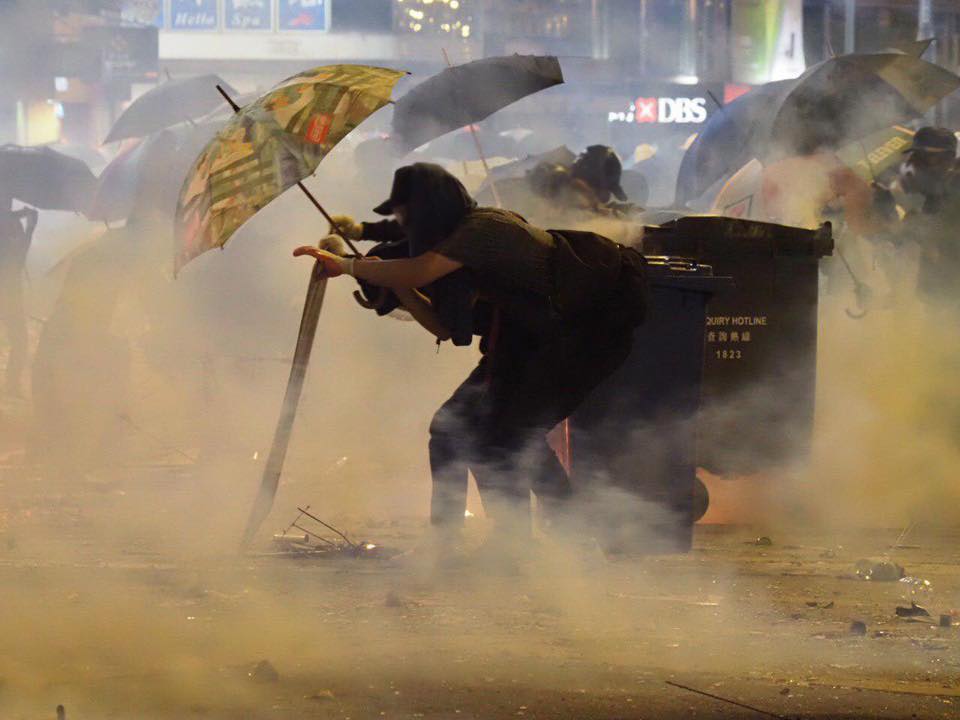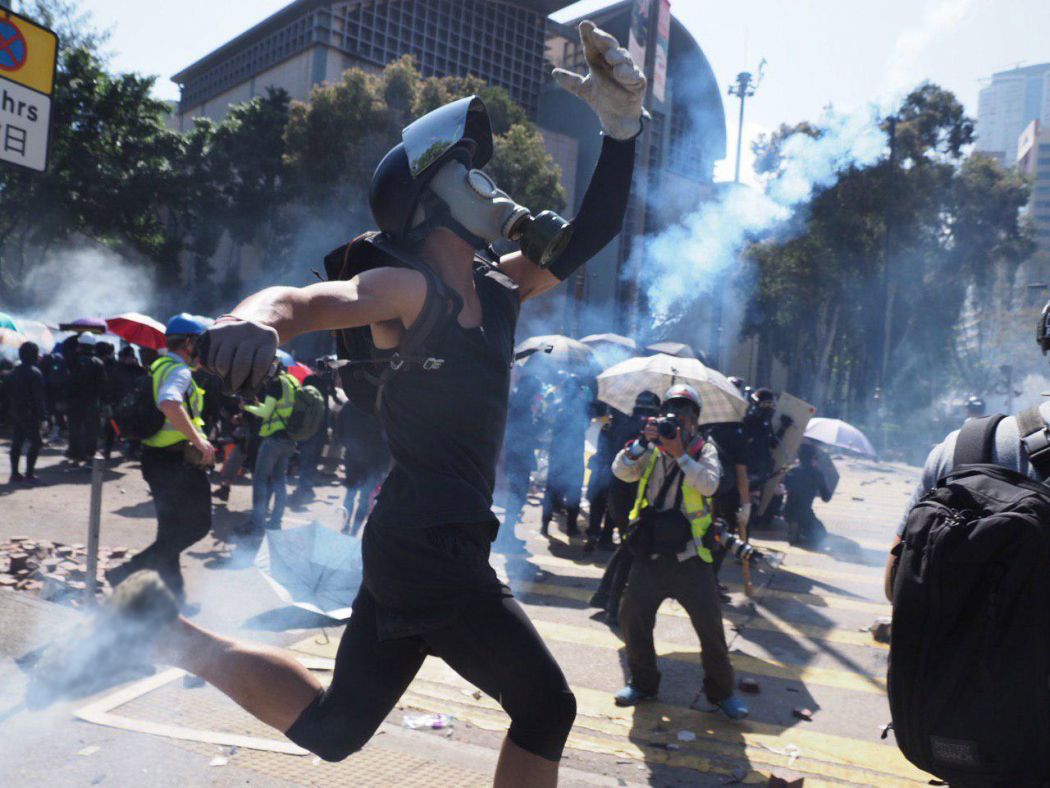The recent use of tear gas has not caused any significant increase in the particulate matter (PM) concentration across Hong Kong’s districts, the health minister has said.
Secretary for Food and Health Sophia Chan was responding to a written question on Wednesday from Democratic Party lawmaker Wu Chi-wai about adverse health impacts of tear gas.
Chan said that, since tear gas is heavier than air, it will settle on the ground soon after it is launched. “The residue, in general, will settle on [the] surface of objects, and it will not suspend in the air for a long time… as its dispersion is limited,” she said.

Citing PM data from the Environmental Protection Department, Chan said that data recorded at air quality monitoring stations showed that there were no anomalies in the PM levels recorded near the areas where tear gas had been deployed.
“On the other hand, there were instances showing that when arson activities took place near a monitoring station, the PM concentrations recorded at the station increased to a high level, which was almost double the normal levels for that day, for several hours. This reflects that arson activities will significantly affect the air quality in the vicinity,” she said.

The police have said they have fired more than 10,000 tear gas canisters since large scale protests began in June. Demonstrations are continuing into their sixth month amid calls for full democracy and accountability for police behaviour.
Sophia Chan said that the Hong Kong Science Museum and the Hong Kong Museum of History – close to the Hong Kong Polytechnic University where a large amount of tear gas canisters were fired – were closed between November 17 and 26. Measures were taken to clean or replace the air-conditioning system filters to ensure the indoor conditions of the museums were suitable for public visits.

Chan also said that, when cleaning tear gas residue, people should use disposable cleaning items. They should wear personal protective equipment such as masks, rubber gloves and rubber aprons.
“In general, surface[s] with residual materials can be wiped using a cloth soaked with soapy water, but hot water should not be used in order to avoid [the] evaporation of the residues,” she said. “Also, residual materials should not be stirred up, and therefore tools such as high-pressure water jet and brooms, as well as electric fans, should not be used.”
She said a set of guidelines have been issued to government-contracted cleaners.

Meanwhile, welfare chief Law Chi-kwong told the legislature on Wednesday that “those who were exposed to tear gas generally experienced mild respiratory and skin irritation, and there was also no serious health impact reported.”
He added that “when compared with dioxins resulting from our barbecue activities, I think the level is indeed very minimal.”
Dioxins can cause cancer, reproduction and developmental problems, according to the World Health Organisations. They are highly toxic and can also interfere with hormones and the immune system.
Hong Kong Free Press relies on direct reader support. Help safeguard independent journalism and press freedom as we invest more in freelancers, overtime, safety gear & insurance during this summer’s protests. 10 ways to support us.

